Analytical skills Normal Reading Fiction Worksheets for 5-Year-Olds
5 filtered results
-
From - To
Discover our "Analytical Skills Normal Reading Fiction Worksheets" designed specifically for 5-year-olds! These engaging worksheets help young learners develop crucial analytical thinking skills while enjoying delightful fictional stories. Through fun activities, children will practice comprehension, identify story elements, and make connections between characters and events. Each worksheet promotes active reading and encourages critical thinking, enabling kids to explore narratives critically. Ideal for parents and teachers looking to enhance early literacy, our resources make learning fun and interactive. Foster a love for reading while nurturing essential analytical skills with our thoughtfully crafted worksheets tailored for curious young minds!
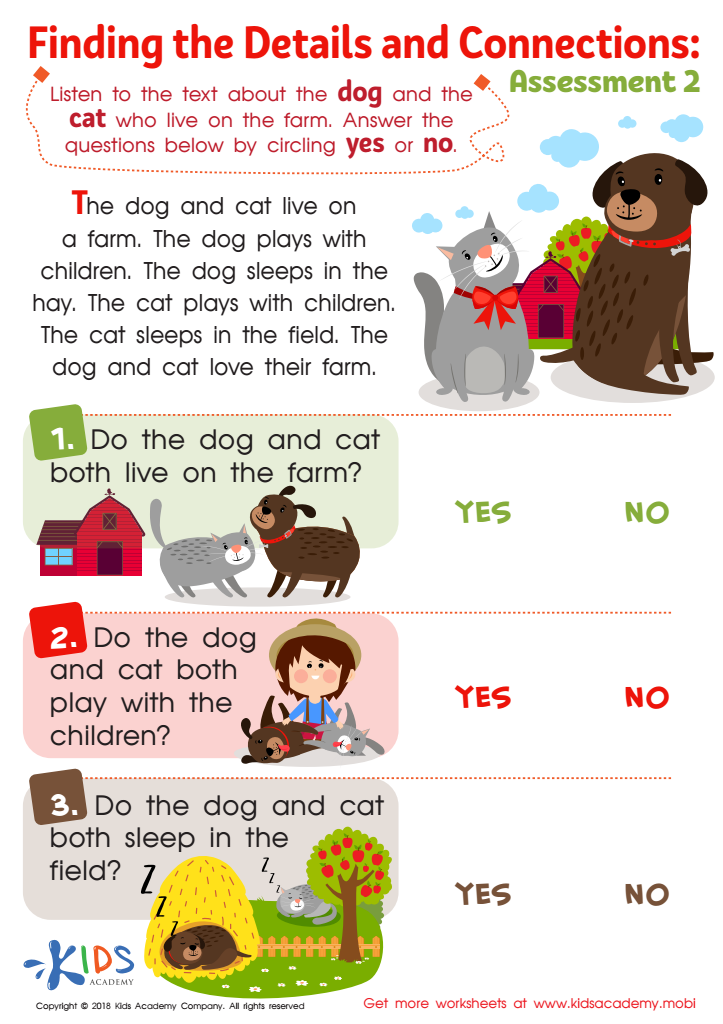

Finding the Details and Connections: Assessment 2 Worksheet
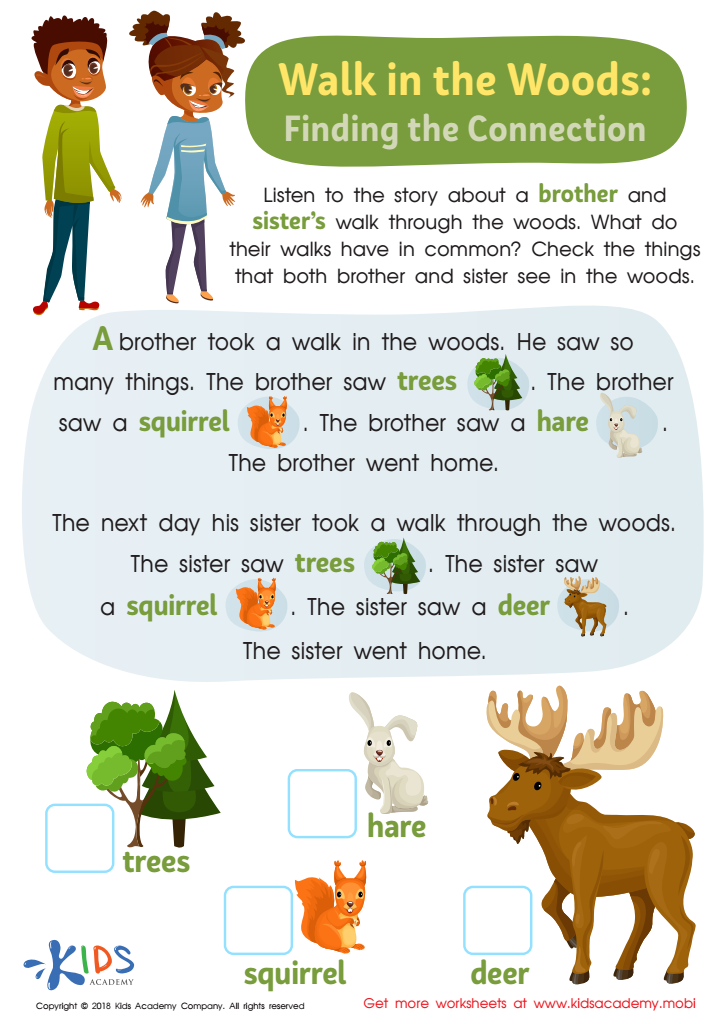

Walk In the Woods: Finding Connections Worksheet
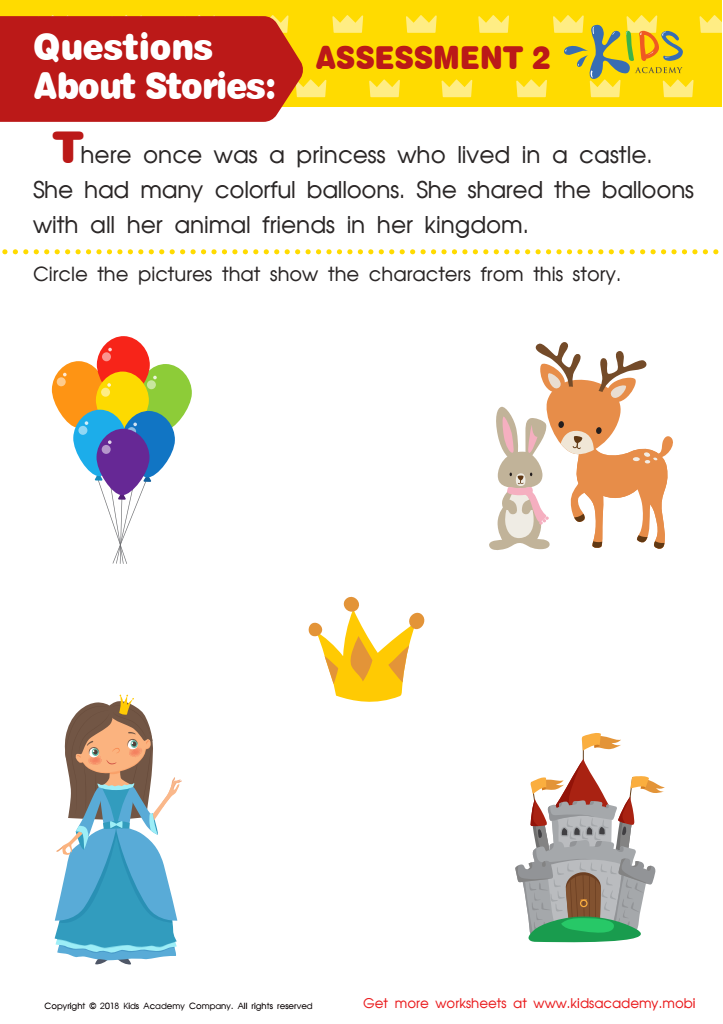

Questions About Stories: Assessment 2 Worksheet
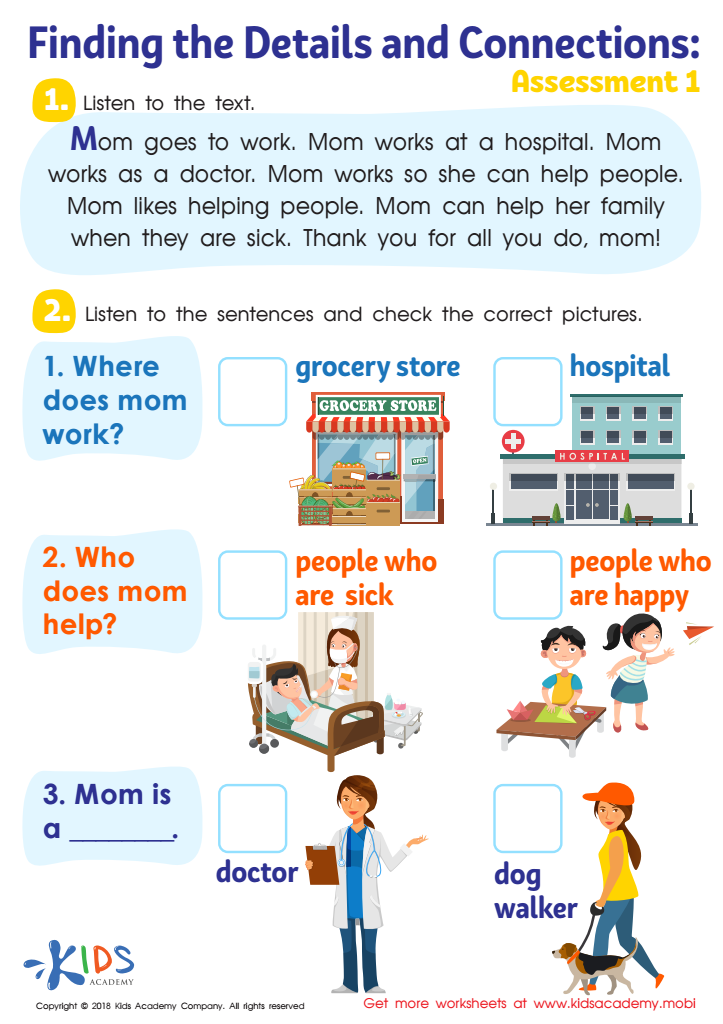

Finding the Details and Connections: Assessment 1 Worksheet
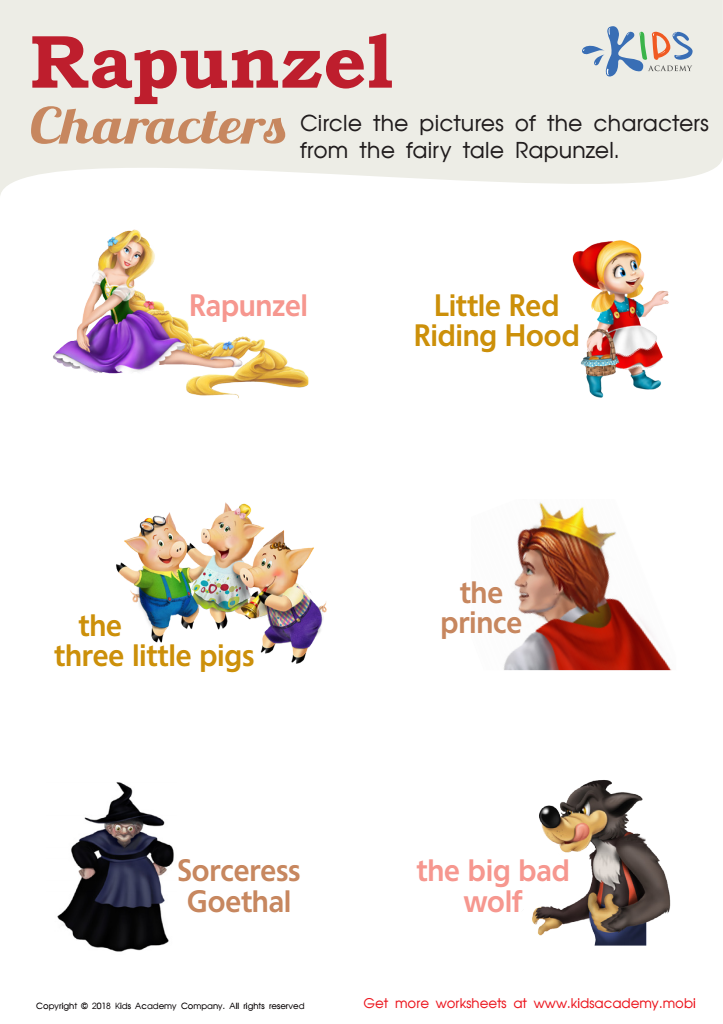

Rapunzel Characters Worksheet
Analytical skills are vital for young children as they lay the groundwork for critical thinking and problem-solving abilities. For 5-year-olds, engaging with fiction can significantly enhance these skills. When parents or teachers prioritize enhancing analytical skills through normal reading, they unlock a realm of cognitive development that is essential for early education.
Reading fiction exposes children to diverse characters, settings, and narratives, fostering imagination and comprehension. As they navigate storylines, they learn to identify cause-and-effect relationships and make predictions, honing their ability to analyze situations and draw conclusions. Discussion prompts about the plot or characters encourage children to express opinions, justify their viewpoints, and engage in reasoning — all key elements of analytical thinking.
Moreover, these skills support language development, expand vocabulary, and improve understanding of complex concepts. Engaging children in conversations about story themes inspires empathy and emotional intelligence, enabling them to analyze social interactions and human behavior.
Ultimately, by nurturing analytical skills through fiction, parents and teachers empower children to become thoughtful, independent thinkers. This foundation will not only enhance their academic success but also prepare them for real-world challenges and social interactions as they grow.

 Assign to My Students
Assign to My Students



















